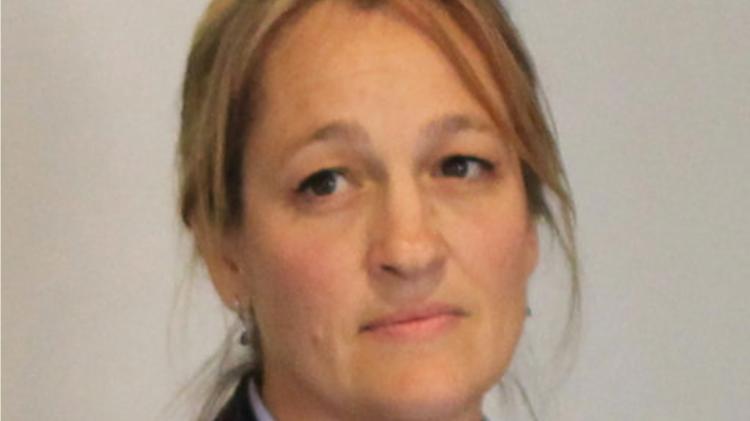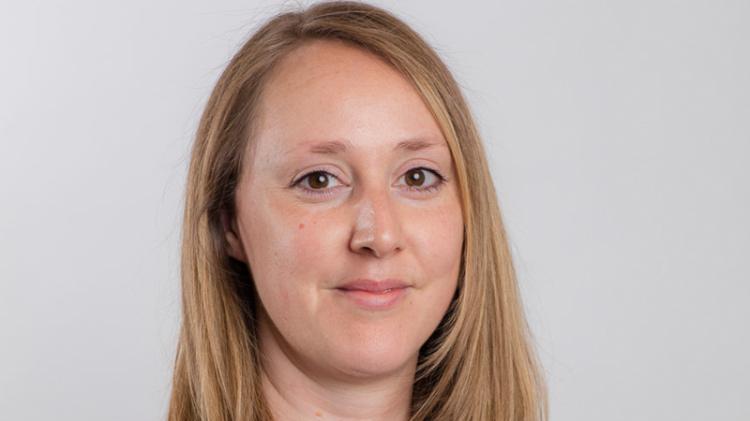July_ The two of us: Natalia Hanley and Helen Simpson
Behind every great PhD candidate is a dedicated supervisor (or two)
June 15, 2021
Helen Simpson is a PhD candidate, researcher & sessional teacher at UOW and is currently completing her PhD research focusing on the evaluation of Domestic Violence Evidence-in-Chief. Her supervisor Natalia Hanley is a qualitative researcher interested in how people experience the institutions and processes of criminal justice.
Meet the candidate
Helen Simpson, PhD Candidate

Helen Simpson
Can you give a description of the topic or question you are investigating?
My research considers the efficacy of Domestic Violence Evidence-in-Chief (DVEC). That is, it considers the audio-visual witness statements that police take from domestic violence (DV) complainants that is used as the initial evidence in court. The research asks how this form of evidence collection is perceived to work by police officers and complainants and asks whether or not audio-visually recorded evidence has more or less functional capability.
It also considers whether or not this form of recorded evidence collection increases or decreases secondary victimisation at various stages in the criminal justice process. That is, it asks if DVEC makes it more or less likely for DV complainants to experience re-traumatisation as a result of the investigative interview and/or testifying process.
How did you select your research topic? Where does your interest in this field come from?
I don’t think I chose my research topic, rather it chose me. As a former true-crime journalist I have always felt a connection with the work police do and the survivor-victims (or complainants) they assist. So, when I completed my Masters (honours) of Criminology and Criminal Justice it felt natural to combine that affinity and my interest in interviewing together to write my thesis on police-complainant interview techniques. That research in turn highlighted the many, dynamic, complex and interplaying issues that police are faced with, when interviewing complainants in the aftermath of crime. These include the risky, active and traumatic situations they are confronted with when they attend DV incidents.
Having lived through DV myself and been the recipient of a number of police callouts, I was also acutely aware of the tenuous position DV complainants can be placed in when they are required to make statements to the police. Its not easy when you have kids crying, the partner who hurt you in the next room, angry, you are bruised and aching all over and the neighbours have gathered outside to see why the police are at your place. Then, in the midst of all of that you have to explain the details of what happened to you to an officer, who has restricted time to give and formalities that temper his/her way of dealing with the incident.
How did you find your supervisor?
Natalia (and Prof Lesley Cooper) were amongst those academics recommended to me by the then-Shoalhaven Campus Manager Robbie Collins, who I worked for as a session teacher. She told me she had heard great things about them. However, before I went any further, I did my research on both supervisors, reading everything I could get on them including their publications. I then made contact with Natalia and Lesley and went in for an appointment. Meeting them both was the clincher for me as I immediately not only liked them, but I knew I could work with them for the length of time required to complete my thesis. They were professional, they listened to what I was interested in researching and they offered me honest feedback – something which I have always valued.
Just quietly, when they agreed to take me on as a student, I won the PhD lottery. They deserve the university supervisors award for their efforts. I always felt like my research and I myself were important to them. Without their guidance I would not have had the breadth of research and understanding I do today.
How do you think your research can change the world?
Domestic violence (DV) accounts for around 70-80 percent of call outs in most police districts and yet conviction rates have remained low. DVEC appears to be changing that, which is positive from a prosecutorial viewpoint, however in the new world of law enforcement where not only outcomes but also transparency, accountability and cost are important, tools need to be considered in a multifarious manner and tailored to better suit the contexts within which they are utilised. My research highlights the policing benefits of DVEC in different situations alongside areas that could be improved.
Equally, the research considers how this tool affects those it has been created to aid – DV complainants. This is important because for those who ask the police to intervene on their behalf, the outcome in court is only one part of a process that can have an indelible impact on their lives. This study details the bearing of DVEC recordings on complainants while they are providing statements to police and throughout the prosecutorial process, including when they view their DVEC in court, again underscoring areas where this process is working well or could be improved to reduce the secondary trauma they face. Some of these findings have already been presented to NSW Police and are being used in their training and guidelines.
What advice would you give someone considering doing postgraduate studies?
I have three pieces of advice. The first is, that a PhD is not about the end result rather about the journey. If you can choose a topic that interests you, treat the process as a fascinating learning curve, and involve yourself in conferences and student groups along the way, it is an amazing and memorable trip. One which will not only teach you skills you never dreamt of but also afford you friends and experiences that you will be able to retain in your treasure chest of special moments.
The second is that you remember that this is a journey of learning. Take the time to really understand your topic, explore the widest range of literature you can and be open to recalibrating your study with what you find. Anything extraneous to what you need is a bonus of knowledge that you will take with you into the future anyway.
Thirdly, and most importantly, go in with your eyes wide open. Whilst the PhD journey is amazing and positive, as you progress through life will at times likely get in your way. Throughout my journey, because my research was ever-present in my mind, my family at times felt like I was only half-present – that had a toll on them. Additionally, during the four years COVID hit, my daughter was diagnosed with renal failure, my mother succumbed to rapid onset dementia and my relationship with my long-time partner ended. That said, I was lucky. I had the support of two incredible supervisors – Natalia and Lesley, as well as a number of friends and other staff at UOW. They helped me find the strength and confidence to complete. I guess what I am saying is understand that completing your PhD is not a solo journey, rather one that takes a tribe. Who you go into it with is important, as is opening yourself to their help, because there will likely be a toll at some stage in your research –don’t enter into it lightly.
Meet the supervisor
Dr Natalia Hanley

Dr Natalia Hanley
Can you explain your area of expertise?
I’m a criminologist and qualitative researcher. My research interests are in two areas, the first is the experience of justice systems and processes, especially for people in prison. Recently, I have been privileged to be involved with the Ngana Barangarai (Black Wallaby) project in Junee prison and I am currently working on a project about family video-visits for fathers in prisons across Australia.
My second area of research interest is preventing crime, particularly wildlife crime and domestic and family violence. The harms that eventuate from crime and formal justice responses to crime, are so many, varied and long-lasting that I think it’s crucial to consider ways in which we can do prevention more effectively. I very much enjoy collaborating with fantastic colleagues from other disciplines on all of these research areas.
How did you find yourself where you are now professionally?
My first experience of criminological research was when I did my undergraduate dissertation and I hugely enjoyed it so when I was offered research and tutoring work after graduation I took the chance to enrol in a MSc Social Research as well. I discovered a natural nosiness and enjoyed investigating different topics, meeting diverse communities of people and sharing the learning with students so I sought advice about how to keep doing all of these things and was told to do a PhD.
Off I went to Manchester to do that and then moved to my first lectureship at UWE in Bristol. I came to Australia in 2010 and spent the first few years at the University of Melbourne, eventually making my way to UOW 5 years ago. Overall I think I have responded to opportunities and collaborations as they have emerged, rather than planned an academic career.
What makes a great PhD candidate?
A great PhD candidate is passionate, curious, independent, has stamina and strong organisational skills, and can hold close detail alongside big-picture thinking. I have been fortunate enough to supervise many candidates with these qualities- including Helen!
How do you guide candidates on their journey?
I see my role as helping students to understand and feel in command of their research and candidature. A strong supervisory relationship is built on mutual respect and trust. I try to develop this from the start by seeking to understand a student’s approach to their discipline, their personal source of research inspiration, values and their career goals. This enables me to tailor my approach to supervision to suit each student, create opportunities for students to gain experiences that will assist them to realise their goals, and offer a sounding board for the inevitable trials and tribulations of the doctoral process. I have an open-door policy for emerging issues.
In supervisory teams we work together to set regular targets and have early discussions about mutual expectations and responsibilities. We establish a critical friendship which includes questioning and encouraging candidates to rationalise, clarify and reflect on their assumptions and conclusions and which encourages candidates to advocate for their perspective, approach and interpretation- it is their research after all.
I love supervising PhD candidates. It is inspiring, great fun and tremendously rewarding. It is an honour to be trusted with the responsibility of guiding students through their deeply personal research experience.
What should candidates consider when finding a supervisor?
I encourage people to talk to potential supervisors, or better still, meet them if possible. It is not just about finding a ‘good’ supervisor but a the right supervisor for you. I recommend that candidates ask potential supervisors to describe their approach to supervision and speak to current or previous students. It is also important to identify a supervisory team that works well together.
Do you have people in the appropriate disciplines, or sub-disciplines, with the variety of topic, theoretical and methodological expertise that you need? Where might you need particular support, and what sorts of supervisory style you best respond to? Spending some time reflecting deeply and honestly about what will work for you will help you to select the supervisors who can best support your research training experience.
To learn more about our researchers take a look at their profiles
Dr Natalia Hanley | School of Health and Society
Helen Simpson | School of Health and Society